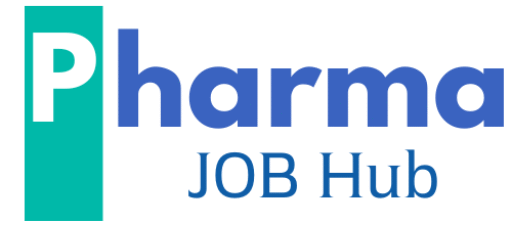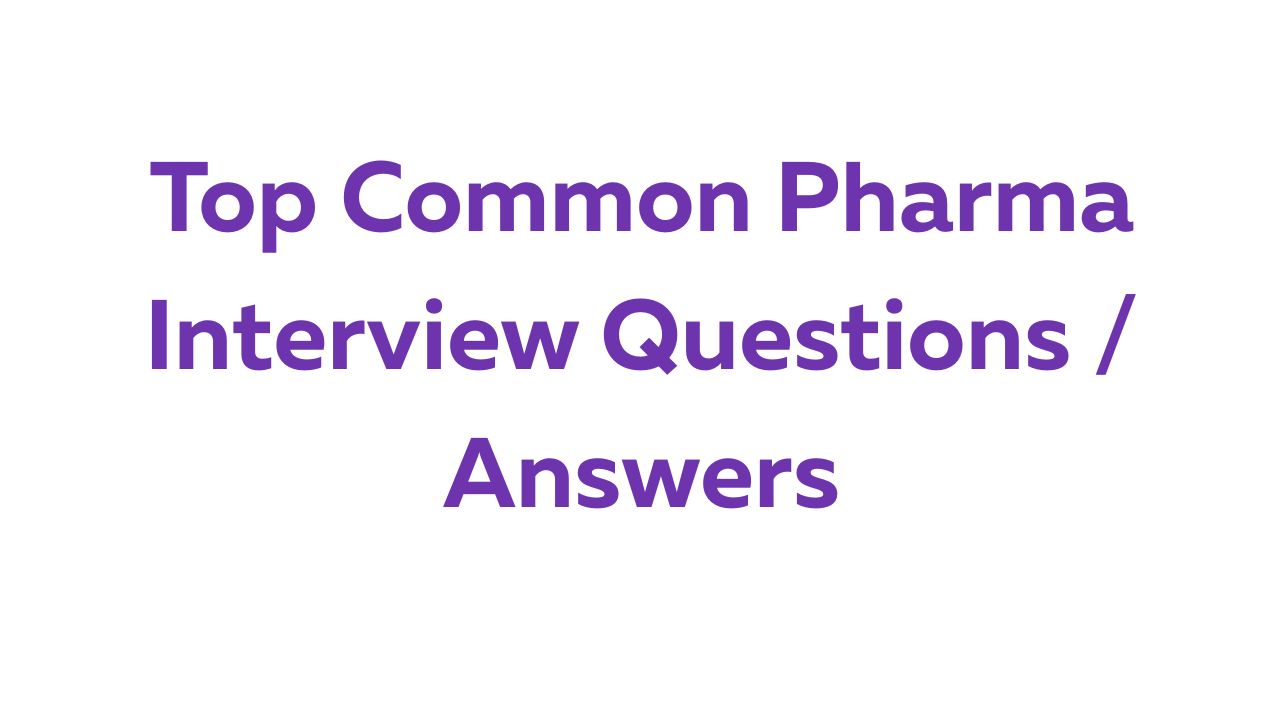Top Common Pharma Interview Questions / Answers
🔹 1. Tell me about yourself.
Answer:
“I have completed my [B.Pharm / M.Sc / M.Pharm] from [College Name]. I have [X years] of experience in the pharmaceutical industry, primarily in [Department – Production/QC/QA]. I’m familiar with GMP practices, documentation, and routine operations in regulated environments. I’m passionate about learning new technologies and contributing to product quality and compliance.”
🔹 2. What do you understand by GMP (Good Manufacturing Practices)?
Answer:
“GMP refers to the guidelines that ensure products are consistently produced and controlled according to quality standards. It covers all aspects of production—from raw materials to finished products—to ensure safety, efficacy, and quality.”
🔹 3. Difference between QA and QC?
Answer:
- QA (Quality Assurance): Focuses on process-oriented activities and ensures quality in the overall system.
- QC (Quality Control): Focuses on product-oriented activities like testing and inspection.
QA ensures “doing things right,” QC ensures “the result is right.”
🔹 4. What is the role of Documentation in the pharma industry?
Answer:
“Documentation provides written proof of all activities performed during manufacturing and testing. It ensures traceability, accountability, and compliance with regulatory requirements. In pharma, if it’s not documented, it’s considered not done.”
🔹 5. What is Validation and why is it important?
Answer:
“Validation is the documented evidence that a process or system performs as expected and produces consistent results. It ensures reliability and product quality—types include process validation, cleaning validation, and analytical method validation.”
🔹 6. What is the difference between Calibration and Validation?
Answer:
- Calibration: Ensures instruments give accurate readings compared to a standard.
- Validation: Ensures the process or system performs as intended.
🔹 7. What is the meaning of Line Clearance?
Answer:
“Line clearance is a documented procedure to verify that all materials, products, and documents from the previous batch are removed before starting a new process. It prevents cross-contamination and mix-ups.”
🔹 8. What are the common instruments used in QC?
Answer:
“HPLC, GC, UV Spectrophotometer, FTIR, Dissolution Apparatus, pH Meter, Balance, and Karl Fischer Titrator are commonly used instruments in QC labs.”
🔹 9. What are Critical Process Parameters (CPP) and Critical Quality Attributes (CQA)?
Answer:
- CPP: Variables that directly impact product quality (e.g., temperature, mixing speed).
- CQA: Physical, chemical, biological, or microbiological properties that ensure product quality (e.g., assay, dissolution, moisture content).
🔹 10. Explain the term Deviation.
Answer:
“A deviation is any departure from an approved procedure, standard, or specification. It is categorized as planned or unplanned, and each must be investigated to identify root cause and implement corrective actions.”
🔹 11. What is Change Control?
Answer:
“Change control is a systematic approach to manage any modification in process, equipment, or documents. Its goal is to ensure that no change adversely affects product quality.”
🔹 12. What are the major regulatory bodies?
Answer:
“USFDA (United States), MHRA (UK), TGA (Australia), EMA (Europe), WHO, and CDSCO (India). Each ensures quality and compliance of pharmaceutical products.”
🔹 13. What is the function of a Stability Study?
Answer:
“To evaluate how the quality of a drug varies with time under environmental factors like temperature, humidity, and light. It helps determine shelf life and recommended storage conditions.”
🔹 14. What is 21 CFR Part 11?
Answer:
“It is a USFDA regulation that defines the criteria for electronic records and electronic signatures to ensure data integrity, authenticity, and confidentiality.”
🔹 15. What is the difference between Sterilization and Disinfection?
Answer:
- Sterilization: Destroys all microorganisms, including spores.
- Disinfection: Eliminates most pathogens but not spores.
🔹 16. What is a BMR / BPR?
Answer:
- BMR (Batch Manufacturing Record) – documents each step in manufacturing.
- BPR (Batch Packing Record) – documents each step in packaging.
They ensure traceability and compliance.
🔹 17. What is SOP and why is it important?
Answer:
“SOP (Standard Operating Procedure) provides step-by-step instructions to carry out routine operations consistently. It ensures compliance, quality, and safety in every process.”
🔹 18. What is an OOS (Out of Specification) and how is it handled?
Answer:
“When a result does not meet the specified limits. It must be investigated immediately to find the root cause, perform retesting (if justified), and take corrective actions before batch release.”
🔹 19. What is Data Integrity?
Answer:
“Data integrity ensures that data are complete, consistent, and accurate throughout their lifecycle. The ALCOA principle (Attributable, Legible, Contemporaneous, Original, Accurate) is followed.”
🔹 20. Why should we hire you?
Answer:
“I have the technical knowledge, attention to detail, and commitment to quality that align with your company’s standards. I’m eager to contribute to your organization’s growth while continuously learning and improving.”
For verified pharma job updates, visit PharmaJobHub.in India’s trusted pharma career portal.
Note: This job information is sourced from publicly available official sources. We share it for reference purposes only and do not claim ownership of the job posting.



